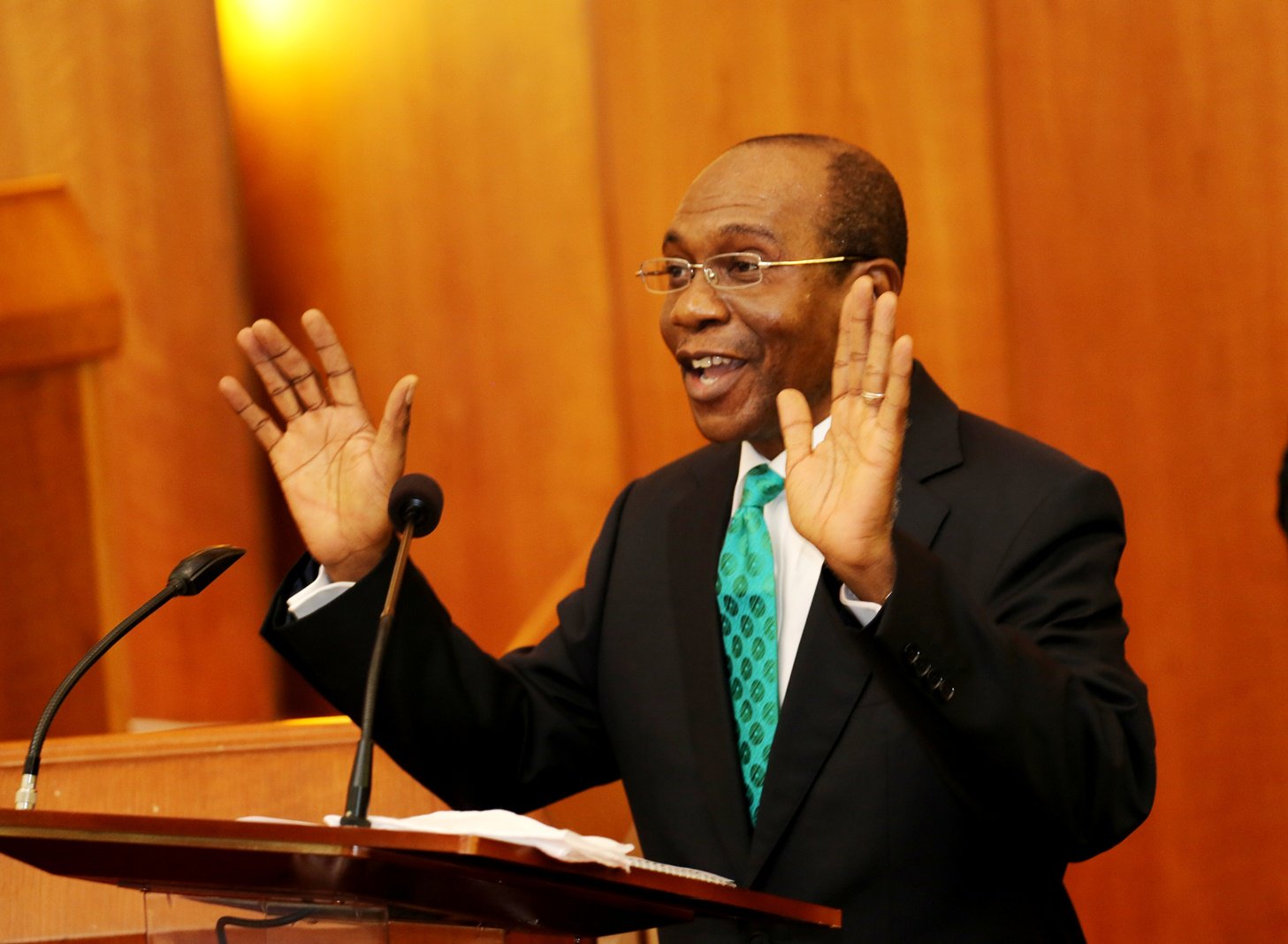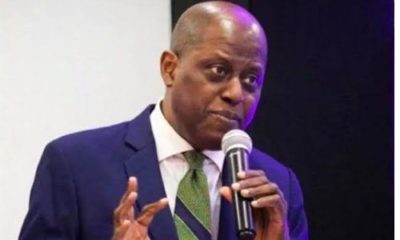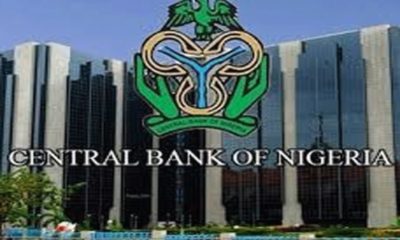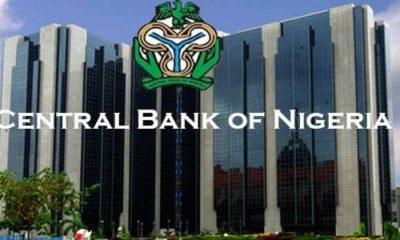Motoring
Falling naira: Importation of used cars drops

LAGOS-The anticipated surge in the importation of used (Tokunbo) vehicles into the country is not manifesting less than two months to t he commencement of the payment of 35 per cent levy on such vehicles.
he commencement of the payment of 35 per cent levy on such vehicles.
Investigation by our correspondent revealed that the devaluation of the naira and the subsequent free fall of the currency against major world currencies had significantly raised the cost of buying used vehicles and clearing them at the nation’s seaports.
It was learnt that though a lot of Nigerians still desired to buy second-hand vehicles, popularly referred to as Tokunbo vehicles, auto dealers had reduced their volume of importation by over 50 per cent due to escalating costs and the failure of many target buyers to commit huge expenditure outlays at this period.
Our correspondent gathered from dealers at the Berger Yard Auto Market along the Apapa/Oshodi Expressway in Lagos that most of them had resorted to routing their imported vehicles through the Cotonou port in the neighbouring Benin Republic in order to remain in business.
The Central Bank of Nigeria had on November 25, 2014 devalued the naira by eight per cent due to the falling prices of crude oil in the international market, with the currency’s exchange value to the United States dollar moving from 155 to 168.
Ever since the announcement of the devaluation of the currency, the naira has been on a free fall, reaching an all-time low of 200 against the dollar last week Monday at the CBN’s interbank market. In the parallel market, the dollar is currently selling for about N213.
As a result, our correspondent gathered that most auto dealers were holding back on used vehicle importation because it was becoming increasingly difficult for them to raise the requisite foreign exchange, while those who were able to had to come up with more naira.
The dealers complained of poor sales, adding that most people who had shown interest in purchasing the vehicles had to abandon the idea because of the rising prices.
When our correspondent visited the Berger auto market, several vehicles with yellow stickers, indicating that they were imported through Cotonou, were seen among vehicles on display for sale. There was also very little commercial activity going on at the once busy auto market.
The President, Berger Car Dealers Association, Mr. Metche Nnadiekwe, said, “Business has been really slow. We don’t get much patronage from buyers again. We have also been forced to reduce our imports because importing cars has become very expensive due to the present value of the naira. There is no point using all you have to import cars if there are no buyers for them.
“When things were rosy, we could get between 10 and 20 buyers in a day at this park alone. With all the other parks put together, the number was more. Now that things are so tight, we get an average of five buyers daily at this park. When you put figures together from other parks, it is about 50 buyers in the entire market.”
The Federal Government had in September 2013 introduced the new auto policy to encourage Nigerians to use brand new vehicles assembled in the country by raising the duty on imported new and used vehicles from 22 per cent to 70 per cent.
The first phase of the policy involving the payment of 35 per cent duty came into effect in February 2014. The second phase of the policy, which was expected to take effect on July 1, 2014, was postponed to January 1, 2015 after consultations with stakeholders and later to April 30, 2015.
Although Nnadiekwe admitted that more dealers were importing used vehicles through the Cotonou port, he declined to say how cheap the cost of such vehicles were in relation to those imported through the Lagos ports.
He, however, assured buyers that vehicles brought in through the Cotonou port were not smuggled into Nigeria, adding that had been duly cleared at the Seme border. “Even if the difference between the cost of import through Lagos and Cotonou ports is just N5,000 or N10,000, it still means a lot to the car dealers. We are all struggling to remain in business, ” he said.
Motoring
FCTA Pulls Plugs On Taxi Rank, Terminal Services Contracts
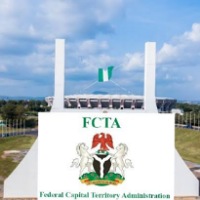
The Federal Capital Territory Administration (FCTA) has ended contracts with taxi rank and terminal operators due to their failure to meet engagement terms and conditions.
Mr. Ubokutom Nyah, the Mandate Secretary of the Transportation Secretariat, FCTA, made this announcement during a meeting with managers of these terminals and taxi ranks in Abuja.
Nyah clarified that due to the operators’ failure to fulfill their engagement terms, the FCTA had to terminate their contracts.
He instructed them to transfer control of the ranks to the Administration within three months, starting from Nov. 21.
He lamented the presence of unauthorized motor parks in the city and assured the readiness of the Administration to establish proper taxi ranks and terminals in the capital.
He revealed that personally visiting the city’s taxi ranks, terminals, and unauthorized motor parks gave him direct insight into the poor condition of these facilities.
He emphasized that as the federal capital city, Abuja deserves better, highlighting that the poor condition of these facilities attracts various criminal elements.
He said “We must rid Abuja of all these. I have gone round the taxi ranks, and of all the places I visited, not one is worthy to be called even a village motor park.”
The Mandate Secretary stressed that the intention wasn’t punitive; rather, it aimed to revamp the sector, introduce new engagement terms, and modernize taxi ranks and terminals in the federal capital.
He also highlighted the plan to increase the number of terminals and ranks where necessary, which would positively impact the administration’s revenue.
He emphasized that this measure was part of a broader effort to eliminate illegal motor parks in Abuja and curb the associated criminal activities.
In response, Mr. Adebisi Lawal, the Operator of Jahi Taxi Rank, praised the administration’s initiative to modernize the taxi ranks and terminals.
Lawal urged the administration to prioritize current operators’ involvement in the selection of new developers for the modernization of the taxi ranks and terminals.
Motoring
Power Show Sees Soldiers Batter LASTMA Officer
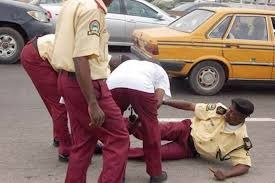
It was a show of power at the Ojota area of Lagos on Monday as soldiers pummeled an officer of the Lagos State Traffic Management Authority, (LASTMA).
Eyewitness accounts claim that the ugly scene played out around 8am, and saw about eight soldiers pounce on the yet to identified LASTMA official, while his colleagues took to their heels.
The video of the melodrama has gone viral, where the LASTMA official was appealing to the soldiers, who appeared bent on ‘teaching him a lesson’.
This onslaught comes on the back of a reported assault of a soldier at the same location by LASTMA officials last week.
It would appear that what played out today was the army asserting its authority and defending their khaki as the armed soldiers carried out what looked like a revenge mission.
Eyewitnesses further averred that the victim was rushed to a nearby hospital, after the soldiers left the scene.
It was gathered that the authorities at LASTMA has reported the incident to the military authorities who are said to be looking into the matter.
Meanwhile many members of the public are rejoicing that the soldiers have taught the crude LASTMA official that power is stronger than power, for all their atrocities against motorists on Lagos roads.
Motoring
Intra-City Fares Skyrocket By 98% Month-On-Month – NBS
The impact of the removal of subsidy on Premium Motor Spirit (PMS), otherwise known as petrol, has seen the pump prices of the product skyrocket with a corresponding increase in the cost commercial transportation in Nigeria.
According to the National Bureau of Statistics (NBS), intra-city bus transportation fares across Nigerian cities, measured between May and June 2023, increased from N649.59 to N1,285.41 in June 2023.
This translates to 98 percent growth or N635.82 within the month in view.
The NBS made the data available in its Transport Fare Watch report for June 2023.
In the report, the NBS also shared the breakdown of bus journeys within the cities per drop for constant routes; bus journey intercity (state route); charges per person, amongst others.
On a year-on-year basis, the report has it that bus fares rose by 120.63 percent from N582.61 paid by commuters in June 2022.
The average fare paid by commuters for bus journey intercity per drop rose to N5,686.49 in June 2023 compared to N4,002.16 in May 2023 indicating an increase of 42.09 percent, month-on-month.
The report read, “The average fare paid by commuters for bus journeys within the city per drop increased by 97.88 per cent from N649.59 in May 2023 to N1,285.41 in June 2023.
On a year-on-year basis, it rose by 120.63 per cent from N582.61 in June 2022.
“In another category, the average fare paid by commuters for bus journey intercity per drop rose to N5,686.49 in June 2023, indicating an increase of 42.09 on a month-on-month basis compared to N4,002.16 in May 2023.
“On a year-on-year basis, the fare rose by 55.25 per cent from N3,662.87 in June 2022.”
Biztellers reported that the twin forces of forex pressure and increasing price of Brent in the global market would likely see the pump prices of petrol, increased again in no distant time in Nigeria.


